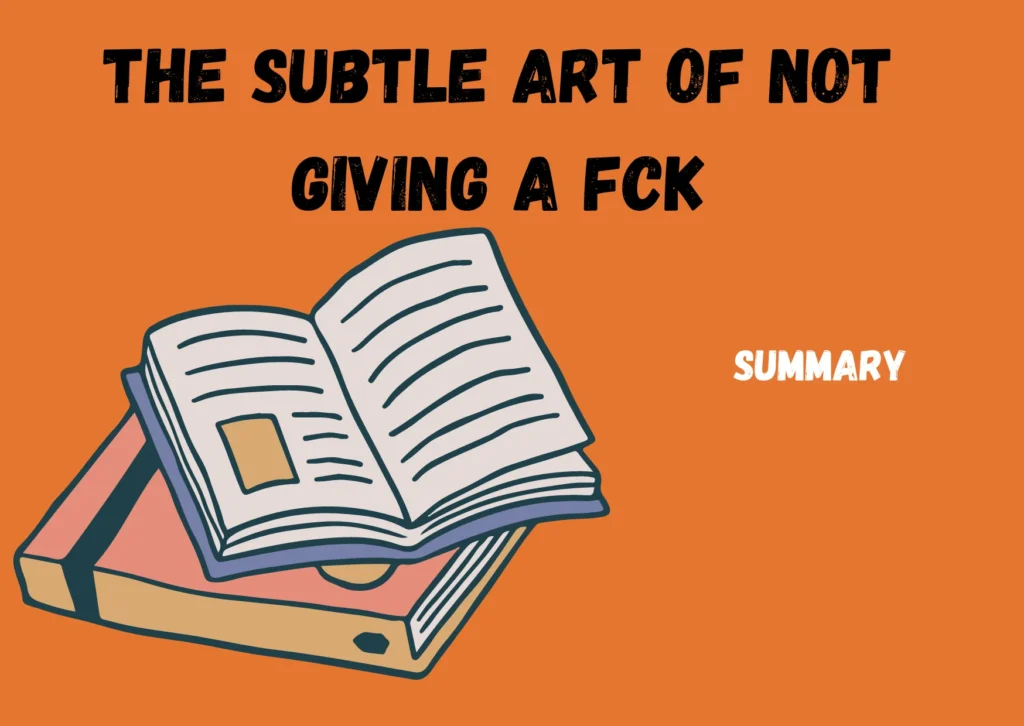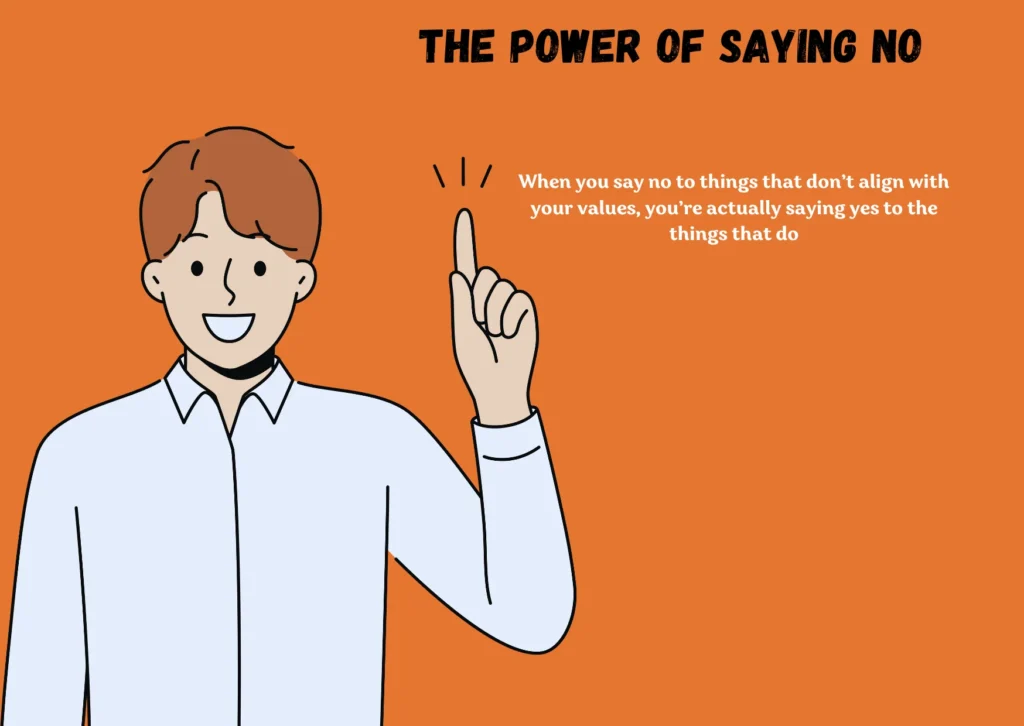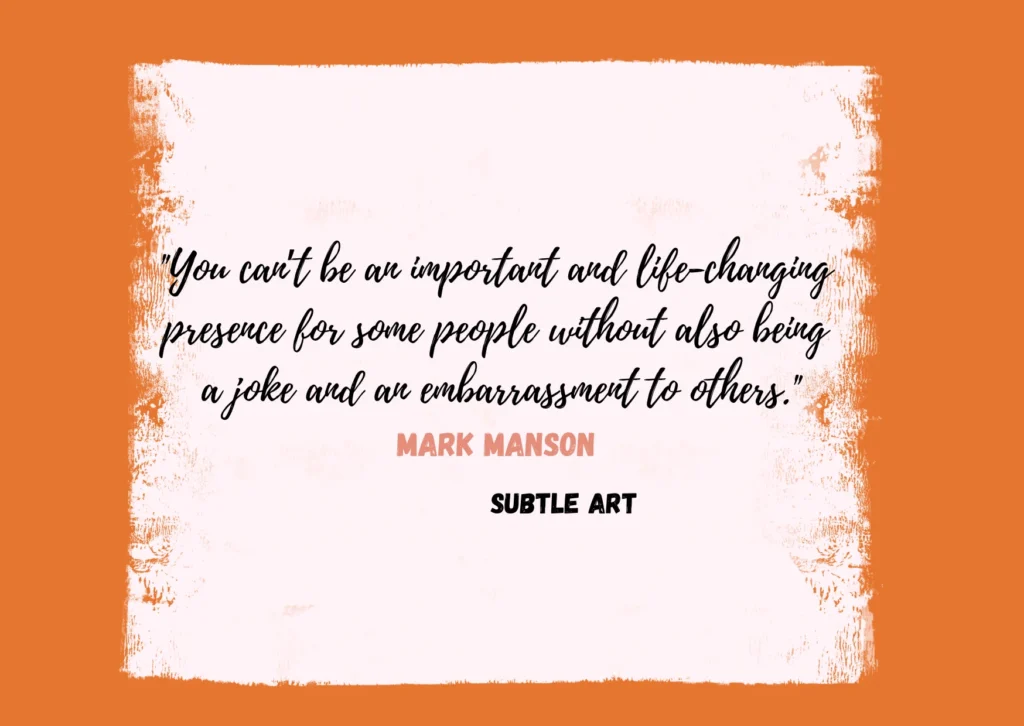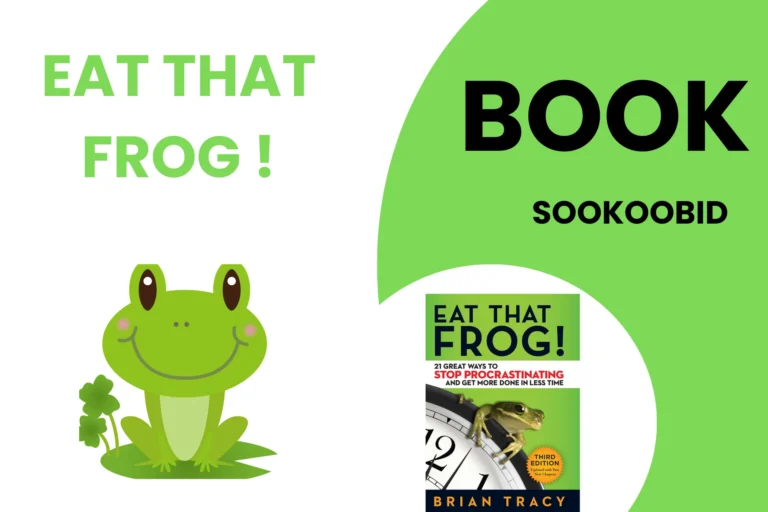The Subtle Art of Not Giving a F Summary

The Subtle Art of Not Giving a F Summary
Introduction
Have you ever woke up in bed thinking that you overburdened yourself with caring about everything in life? In every sphere of life, starting from work, people tend to discuss all sorts of topics that are not even worth discussing. That is why The Subtle Art of Not Giving a F Summary by Mark Manson comes in handy. This no-nonsense book is a guide for thinking about how not to spend time and effort on unimportant things that do not matter at all. We have to eliminate stuff and focus on those aspects worth pursuing formulated and optimistic rather than random and positive.
Overview of the Book
What Does “Not Giving a F*ck” Really Mean?
First off, let’s clear up a misunderstanding: Manson isn’t suggesting that you should stop caring about everything. Instead, he’s saying we need to become more selective about what we care about. Not every problem, opinion, or failure deserves your time and energy. Manson’s philosophy is about deciding which things truly deserve your attention — and letting the rest go.
The Author’s Approach
Mark Manson writes with a blunt, straightforward style that cuts through the fluff of typical self-help books. His approach is refreshing because he doesn’t sugarcoat life. He doesn’t preach constant positivity but instead acknowledges that life has its ups and downs. His idea is that the sooner we accept that life isn’t always perfect, the happier we can be. It’s less about always being upbeat and more about being real.
Key Concepts of the Book
The Importance of Values
One of the central themes in [The Subtle Art of Not Giving a F Summary] is the concept of values. Manson argues that happiness stems from having the right values. If we care about superficial things, like always being liked or being rich at any cost, we’ll constantly feel unsatisfied.
Good Values vs. Bad Values
Manson makes a distinction between good and bad values. Good values are things like honesty, kindness, and integrity — things that are rooted in reality and within your control. Bad values, on the other hand, are things like obsessing over what others think of you or avoiding failure at all costs. According to Manson, people who prioritize bad values are often the most unhappy.
Embracing Failure
Failure is an essential part of growth. Manson doesn’t want you to be afraid of failure — in fact, he wants you to embrace it. Failure teaches valuable lessons and helps us refine our values. The more we fail, the more we learn about what actually matters to us. Instead of avoiding failure, Manson encourages us to see it as a stepping stone toward success.
The Power of Saying No

In today’s fast-paced world, everyone wants your attention. Whether it’s your boss, social media, or even friends, there’s always something or someone demanding you give a f*ck. Manson stresses the importance of saying “no.” When you say no to things that don’t align with your values, you’re actually saying yes to the things that do. Learning how to decline unnecessary commitments is a crucial skill for preserving your time and energy.
Taking Responsibility
Manson places a lot of emphasis on personal responsibility. Life might throw all kinds of challenges your way, and while you can’t control everything, you can control how you respond. It’s about owning your actions, decisions, and emotions. By taking responsibility, you empower yourself to navigate life’s ups and downs without blaming others or playing the victim.
The Subtle Art of Prioritizing What Matters
Life Is Short — Choose Wisely

The core message of the book is simple: life is limited, and you can’t care about everything. You have to choose what’s worth your time and what’s not. This idea of choice is powerful because it reminds us that we’re in control of what we focus on. Instead of worrying about every little thing, we should decide what truly matters to us and invest our energy there.
Facing Life’s Challenges
Manson is very clear: life will not always be easy. There will be pain, suffering, and hardship. But instead of running from these challenges, he argues that we should face them head-on. Challenges and discomfort are part of life, and accepting that helps us to move forward without constantly seeking comfort and happiness. By accepting the reality of life’s difficulties, we gain a clearer sense of purpose.
Stop Chasing Happiness
Ironically, one of Manson’s key points is that chasing happiness actually makes us less happy. When we obsess over being happy all the time, we set unrealistic expectations for ourselves. Instead of constantly seeking pleasure or avoiding discomfort, Manson suggests focusing on what brings genuine fulfillment — like strong relationships, personal growth, and meaningful work. True happiness, he argues, comes from embracing life’s challenges, not running from them.
The Value of Less Is More
Simplifying Your Life
One of the most liberating ideas in Manson’s book is the notion that less is more. The more you focus on what truly matters, the less stress and anxiety you’ll feel. By narrowing your focus, you cut out the noise and distractions that overwhelm so many people. Simplicity is key to living a more meaningful life.
Quality Over Quantity
Manson highlights that life is not about how much you do, but the quality of what you choose to invest in. This goes for relationships, work, and even personal achievements. Instead of spreading yourself too thin by trying to do everything, focus on doing a few things really well. This shift in mindset can make a huge difference in how fulfilled you feel.

Conclusion
At its core, The Subtle Art of Not Giving a F Summary is about learning to care about the things that truly matter and letting go of everything else. It’s a philosophy that encourages us to embrace failure, accept life’s challenges, and take responsibility for our actions. When we stop giving a f*ck about superficial things and start focusing on what really matters, life becomes less stressful and more fulfilling. The secret isn’t in caring less — it’s in caring smarter.
FAQs
1. What’s the book’s main message?
The main takeaway is that we need to focus on what truly matters in life and let go of everything else. It’s about being selective with your energy and attention.
2. Is this book only for people who don’t care about anything?
Not at all. It’s about learning to care wisely. Manson doesn’t suggest you stop caring; he encourages you to care more intentionally.
3. How does the book differ from other self-help books?
Manson’s approach is more blunt and realistic. He doesn’t promote constant positivity but instead advocates for accepting life’s challenges and focusing on meaningful values.
4. Why is failure important?
Manson sees failure as a key part of growth. By embracing failure, we learn valuable lessons and get closer to what truly matters in our lives.
5. What are good values according to the book?
Good values are those that are based on reality, socially constructive, and within our control, such as honesty, compassion, and responsibility.




